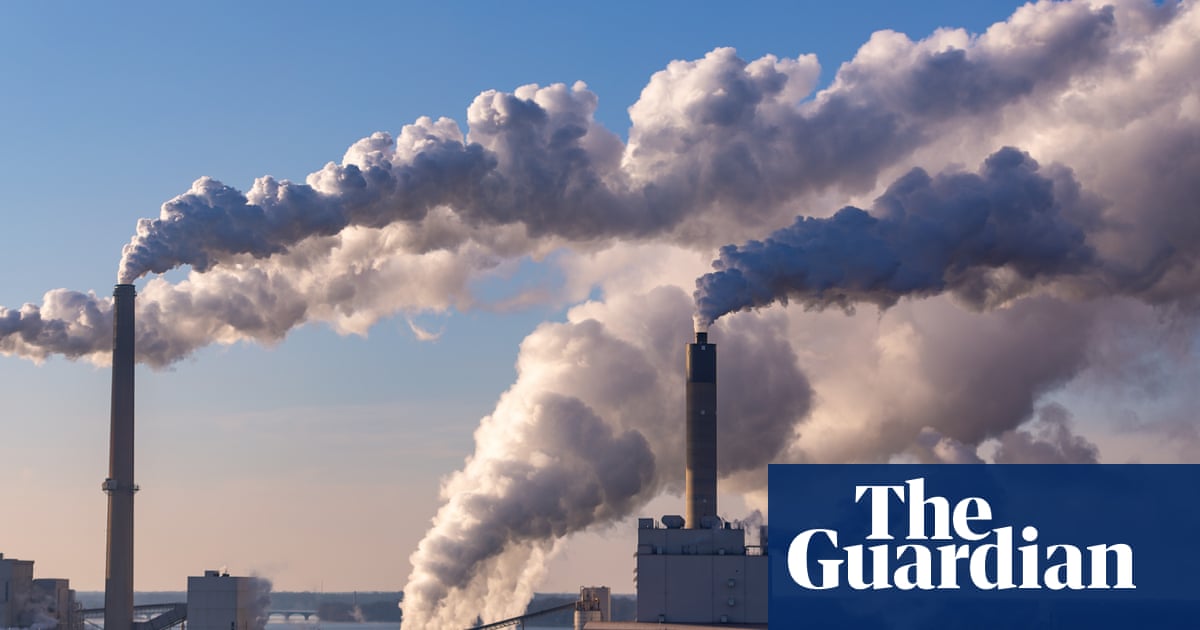Donald Trump’sEnvironmental Protection Agency (EPA) claimed on Wednesday that its plan to eviscerate power plant pollution standards will save the US around $1bn a year. In reality, though, this represents a starkly uneven trade-off, experts say.
The savings for “Americans” will go entirely to power plant operators who won’t have to cut their pollution, while at the same time climate and health benefits for all Americans that are 20 times larger in dollar terms will be deleted.
“The massive cost to the public compared to the minuscule benefits is breathtaking,” said Charles Harper, power sector campaigner at green group Evergreen Action. “The costs will be borne by the American people who will breathe dirtier air and those around the world suffering from climate change. The benefits will go to a very small group of donors. Perhaps they should change the name of the agency if they are no longer about protecting the health of Americans.”
The EPA isproposing to entirely ditchall restrictions on planet-heating emissions coming from US power plants, the second largest source of carbon pollution in the country, while also weakening a separate regulation designed to limit the amount of harmful toxins, such as mercury, seeping from these power plants into Americans’ air, water and soils.
These restrictions were imposed by Joe Biden to “advance the climate change cult” and the “green new scam”, according to Lee Zeldin, the EPA administrator, at an unveiling of the rollbacks on Wednesday that did not mention any benefit to the environment or public health.
“Together, these rules have been criticized as being designed to regulate coal, oil and gas out of existence,” said Zeldin, who touted the need for “beautiful clean coal” and for the US to develop artificial intelligence, neither a core EPA responsibility.
In justifying its decision, the EPA has claimed that power plant emissions “do not contribute significantly” to the climate crisis – despite US electricity generation being one of the largest single sources of such pollution in the world – and that the rollbackswill save the country$19bn over two decades, or about $1.2bn a year.
However, this “saving” is entirely for the benefit of power plant operators who won’t have to install technology to reduce hazardous pollution, rather than the broader public. The EPA has said overall electricity costs will go down, too, but did not provide a figure on any estimated savings from this.
By contrast, the existing climate rule for power plants, put in place by Biden last year, waspreviously estimated by the EPAto save the US $370bn by the 2040s, at around $20bn a year, via climate and public health benefits. The rule is also expected to slash more than 1bn tons in carbon emissions and save thousands of lives from reduced air pollution.
Experts said that the vast 20 to one discrepancy in benefits, and who they flow to, represents a damaging favor given to the fossil fuel interests that have strongly backed Trump, at the expense of the American public.
“The only people who benefit from these rollbacks are the biggest emitters of toxic pollution who don’t want to install cleaner technologies,” said Michelle Roos, executive director of the Environmental Protection Network, a group composed of former EPA staff. “American families will pay the cost of these rollbacks in higher health care bills from emergency room visits, missed work days and missed school days. This proposal is scientifically indefensible and represents a complete abdication of EPA’s responsibilities under the Clean Air Act.”
Under Trump, the EPA hasset about dismantling an array of clean air and water protectionsand adopted the president’s agenda of boosting fossil fuel production. The agency argues that casting off such regulations will bolster the economy and save money for households.
“Coal and natural gas power plants are essential sources of base load power that are needed to fuel manufacturing and turn the United States into the artificial intelligence capital of the world,” said an EPA spokesperson. “Regulatory costs are inherently regressive – placing a heavier burden on those who can least afford it. These costs are ultimately borne by consumers in the form of higher utility bills and rolling blackouts.”
But critics warn that the EPA’s traditional purpose to protect public health and the environment is being rapidly eroded.
“EPA’s proposal to stop regulating emissions of greenhouse gases and mercury from US power plants reflects Trump’s breathtaking willingness to sacrifice public health and progress against climate change in the service of the nation’s worst polluters,” said John Holdren, who served as Barack Obama’s science advisor. “In this and so many other ways, Trump and his enablers are doing their best to drive this country off a cliff.”
“American jobs, economic competitiveness, health, environment, national security, and standing in the world are all in peril from Trump’s ignorance and reckless disregard for the public good,” said Holdren, who now co-directs the science, technology and public policy program at Harvard University’s Belfer Center.The EPA announcement makes good on Trump’s campaign trail promise to “unleash American energy” andopen“dozens and dozens” of power plants.
It came as part of Trump’s assault on pollution regulations. Taken together, his administration’s planned environmental rollbacks – including of power plant and tailpipe emission standards and clean energy incentives from Biden’s Inflation Reduction Act and Bipartisan Infrastructure Law – will result in 22,800 additional pollution-related deaths and a $1.1tn reduction in US GDP by 2035, aUniversity of Maryland studypublished Thursday found.Julie McNamara, an associate director at the science, climate and health-focused advocacy group Union of Concerned Scientists, said Zeldin’s Wednesday proposal was “shameful”.
“There’s no meaningful path to meet US climate goals without addressing carbon emissions from coal- and gas-fired power plants – and there’s no meaningful path to meet global climate goals without the United States,” she said.
